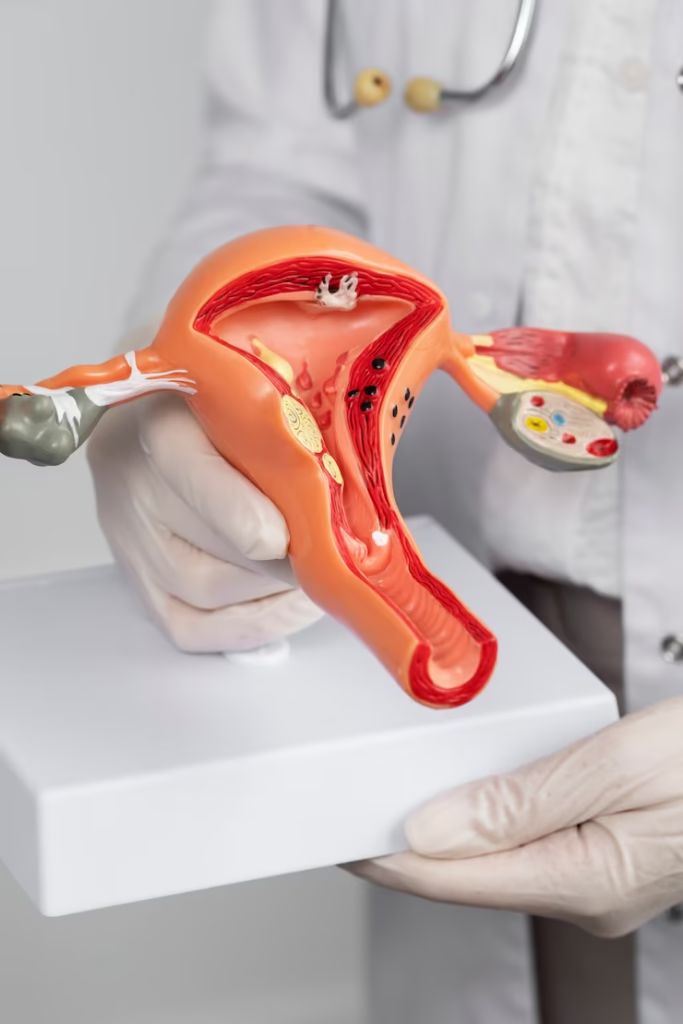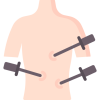Best Urogynecology Surgery in Ahmedabad
Urogynecology addresses the complex issues related to the pelvic floor and the urinary system in women.
Advanced Urogynecology Treatments in Ahmedabad
Urogynecology surgery in Ahmedabad provides expert care for women with pelvic floor disorders, such as urinary incontinence and pelvic organ prolapse. Using advanced, minimally invasive techniques, specialists ensure effective treatment, faster recovery, and improved quality of life.
- Treatment for urinary incontinence and pelvic organ prolapse
- Minimally invasive surgical options
- Personalized care for better outcomes

What Are
Conditions Treated in Urogynaecology
Urinary Incontinence
The urine leakage that is involuntary and frequently caused by weak pelvic floor muscles.
Pelvic Organ Prolapse
A condition where pelvic organs drop from their normal position, leading to discomfort and urinary issues.
Pelvic Organ Prolapse
A condition where pelvic organs drop from their normal position, leading to discomfort and urinary issues.
Fecal Incontinence
the inability to regulate bowel movements, which interferes with day-to-day tasks.
Overactive Bladder
Seeing your baby’s face and movements strengthens emotional bonds among parents and family members.
Benefits of Urogynecology Care
Minimally invasive procedures
These techniques reduce the need for large incisions, resulting in less pain, fewer complications, and quicker recovery for conditions like pelvic organ prolapse and urinary incontinence.
Personalized treatment plans
Care is tailored to the severity and type of pelvic floor disorder, ensuring that each patient receives the most effective and appropriate therapy for their individual needs.
Quick recovery and high success rates
Advanced surgical and nonsurgical treatments help patients return to normal activities faster, with excellent long-term outcomes and improved quality of life.
Advanced diagnostic tools
State-of-the-art imaging and evaluation methods enable accurate diagnosis, leading to more targeted and effective treatment strategies.
Expert Care for Women’s Urogynecology Problems
We can treat several urogynecological problems at Prabhu Women Hospital, such as urinary leakage, painful pelvis, organ prolapse, and weak bladder control. Our team works carefully with advanced tools and a caring attitude to give each woman accurate results and care that suits her needs personally. If your goal is to feel relief, recover or manage symptoms in the long run, we will provide results thoughtfully and with expertise.
Process of Urogyneaecology
The specialist evaluates your symptoms and reviews your medical history. This helps in understanding the root cause of pelvic or bladder issues.
A thorough physical and pelvic exam is performed. It helps identify specific areas of concern for accurate diagnosis.
Tests like ultrasound or urodynamics are conducted. These check bladder function and pelvic floor health in detail.
This technology not only helps doctors detect abnormalities with precision but also provides parents with an emotional bonding experience by allowing them to watch their baby in motion.
Book Your Urogynecology Consultation with Trusted Experts
Why Choose Prabhu Women Hospital for Urogynecology?

Advanced 3D Laparoscopy
Prabhu Women Hospital offers 3D laparoscopy, which improves depth understanding, leads to accurate operations, and speeds recovery.

Minimally Invasive, Maximum Care
Laparoscopy at Prabhu Women Hospital results in small cuts, little pain, fewer scars, and quick recovery.

Trusted by Thousands
Thousands of women across the region trust us for advanced technology and expert gynecological care.
Frequently Asked Questions
What is Urogynecology?
Urogynecology is a medical specialty focusing on disorders of the female pelvic floor, including urinary and fecal incontinence, pelvic organ prolapse, and chronic pelvic pain.
How is pelvic organ prolapse treated?
Treatment options include pelvic floor exercises, pessary devices, and surgical interventions, depending on the severity of the condition.
Is urinary incontinence a normal part of aging?
No, urinary incontinence is common with age but not considered normal. It often results from weakened pelvic floor muscles or other treatable medical conditions. Seeking timely treatment from a urogynecologist can help manage and even resolve this condition.
What are the symptoms of pelvic organ prolapse?
Symptoms may include:
A feeling of pressure or fullness in the pelvic area
A visible or tangible bulge in the vaginal opening
Trouble with urination or bowel movements
Pain or discomfort during intercourse
A pulling or heavy sensation in the pelvis
Can pelvic floor exercises help with bladder control?
Yes. Exercises like Kegels can strengthen the pelvic muscles, often improving or resolving mild cases of urinary incontinence and pelvic organ prolapse. These are best done under the supervision of a urogynecologist or physical therapist for optimal results.
How is pelvic organ prolapse treated?
Treatment options include pelvic floor exercises, pessary devices, and surgical interventions, depending on the severity of the condition.
When is surgery necessary for urogynecologic conditions?
Surgery may be needed if:
Non-surgical treatments haven’t been effective
The condition is significantly affecting your daily life
You have a severe pelvic organ prolapse or persistent incontinence
